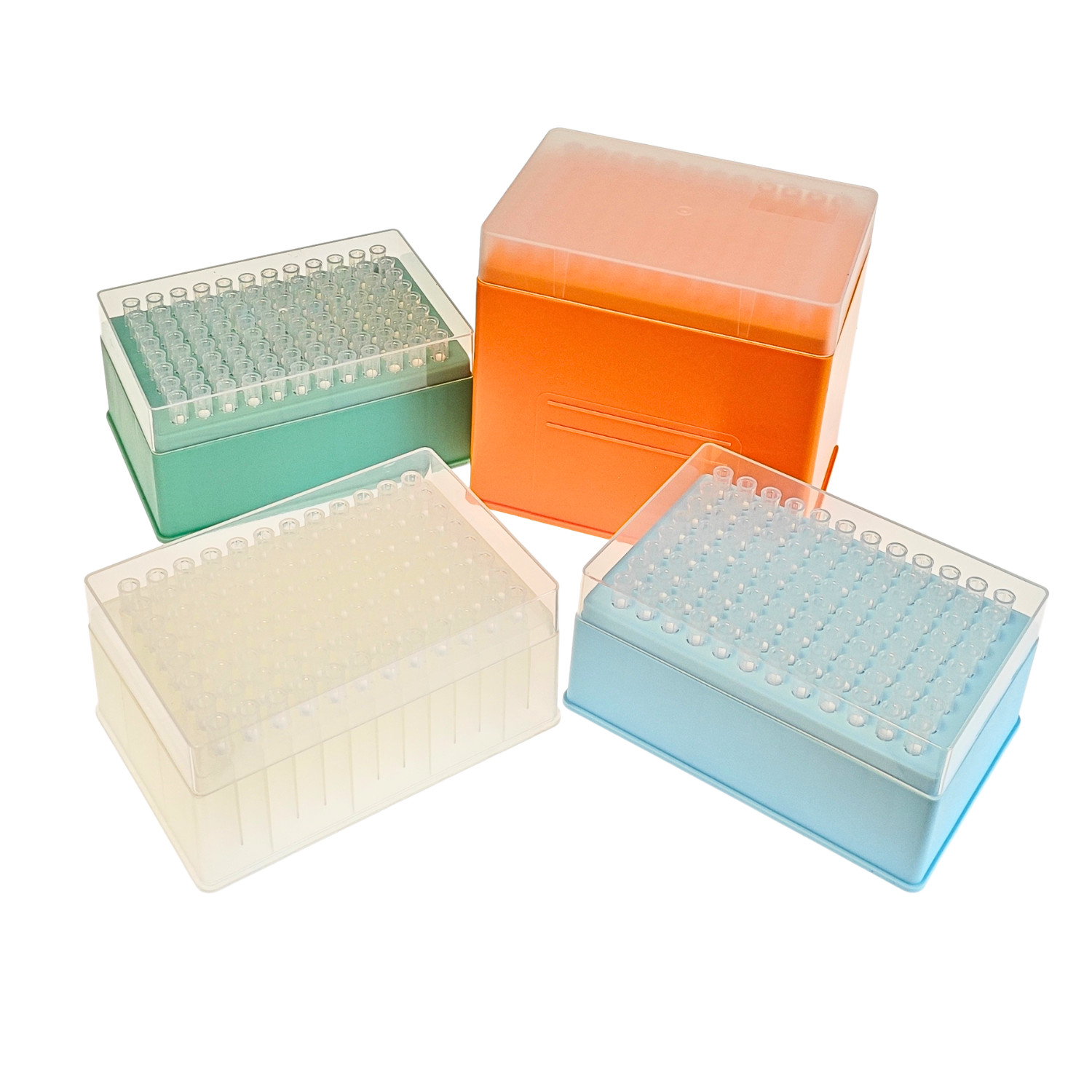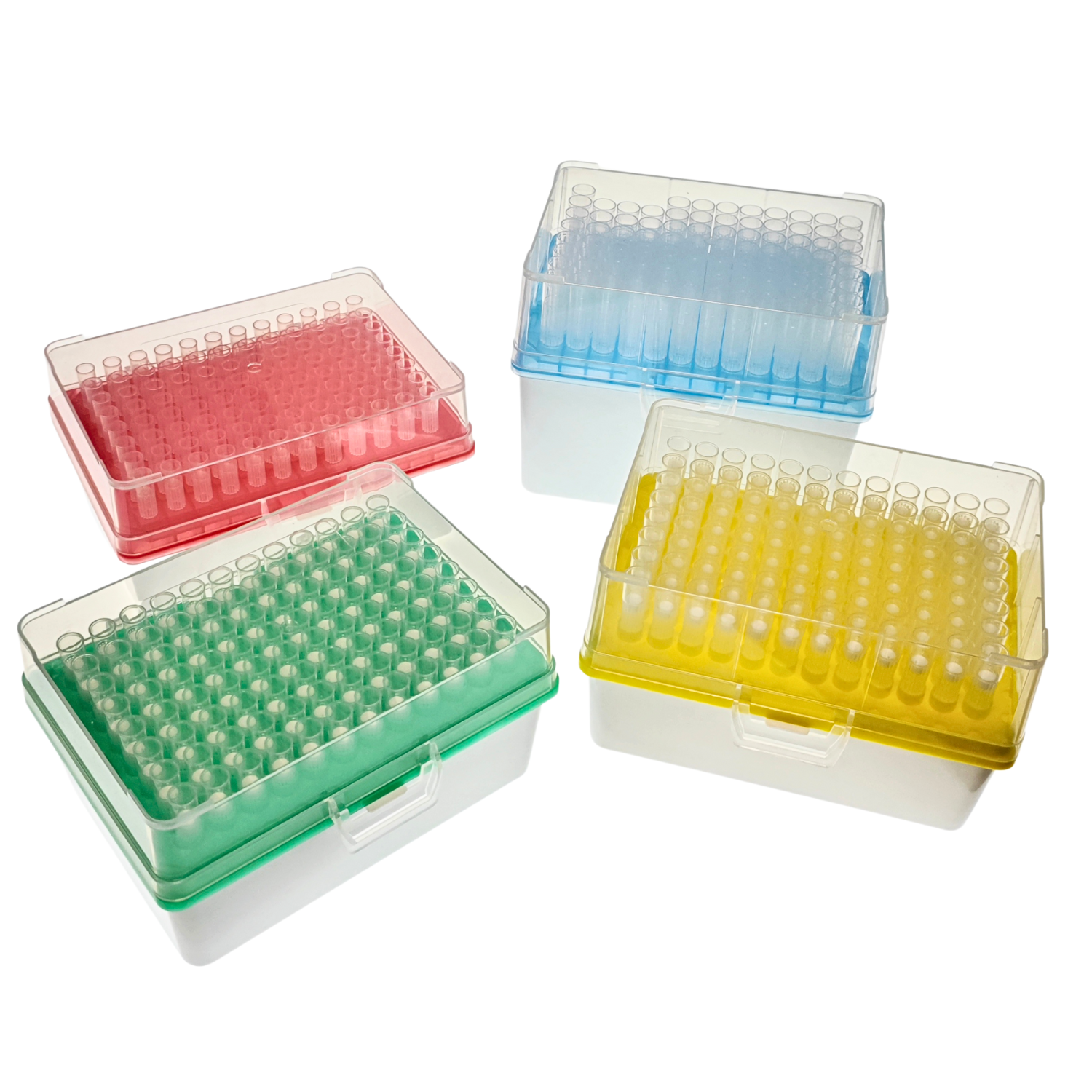Why Are Micropipette Tips Utilized?
Micropipette tips are small but vital tools that play a crucial role in laboratories worldwide. These tips ensure precise handling of small liquid volumes, making them indispensable for various applications, from research to quality control.

1. What Are Micropipette Tips?
Micropipette tips are disposable attachments used with micropipettes to transfer small liquid volumes accurately. Made from high-quality polypropylene, they are lightweight, durable, and chemically resistant, ensuring compatibility with a wide range of liquids.
These tips come in various sizes, designs, and sterilization options to meet diverse laboratory requirements. Depending on the experiment, users can select from standard tips, filter tips, low-retention tips, or sterile tips.


2. Why Are Micropipette Tips Important?
Micropipette tips improve the efficiency, accuracy, and safety of liquid handling in laboratories.
a) Precision in Liquid Handling
Micropipette tips allow for the accurate dispensing of liquids, which is crucial for experiments requiring exact measurements. Even minor deviations can lead to significant errors, particularly in sensitive tests such as qPCR or drug discovery studies.
b) Contamination Prevention
Using sterile, disposable tips eliminates the risk of sample contamination, which is vital in clinical diagnostics and molecular biology. Filtered tips provide additional protection by preventing aerosols from entering the micropipette, safeguarding both the equipment and the samples.
c) Compatibility with Various Pipettes
Modern micropipette tips are compatible with many brands and models, making them a versatile choice for laboratories worldwide. This compatibility ensures streamlined workflows and minimizes the need for multiple tip types.
3. Applications of Micropipette Tips
Micropipette tips are utilized in numerous scientific fields, including:
a) Molecular Biology
They are essential for tasks such as DNA/RNA extraction, PCR setup, and enzyme assays, where precision is key to achieving reliable results.
b) Clinical Diagnostics
In clinical laboratories, micropipette tips are used in ELISA, blood analysis, and other tests where accuracy is critical to patient care.
c) Chemical and Pharmaceutical Research
Micropipette tips play a crucial role in chemical analysis and drug development, ensuring consistency in formulations and quality control.
d) Environmental Testing
In environmental studies, these tips enable precise handling of liquid samples for water testing, soil analysis, and pollutant detection.
4. Types of Micropipette Tips
a) Standard Tips
Ideal for general-purpose liquid handling.
b) Filter Tips
These tips feature a filter to prevent aerosols from contaminating the pipette and samples, making them suitable for sensitive applications.
c) Low-Retention Tips
Low-retention tips have a hydrophobic surface to minimize liquid adhesion, ensuring accurate dispensing of viscous or valuable samples.
d) Sterile Tips
Sterile tips are treated to eliminate contaminants, making them ideal for applications requiring the highest levels of purity.
5. Sustainability and Innovation
Manufacturers are introducing eco-friendly micropipette tips to reduce environmental impact. These include recyclable materials, refill systems, and reduced packaging.
Advancements in tip design also focus on improving ergonomics, reducing pipetting fatigue, and enhancing user efficiency. Features such as ultra-thin walls, universal fit designs, and precise calibration reflect these innovations.
6. Choosing the Right Micropipette Tips
When selecting micropipette tips, consider:
- Volume range: Ensure compatibility with your desired volume range.
- Sterilization: Opt for sterile tips for contamination-sensitive applications.
- Material and design: Choose high-quality materials for durability and chemical resistance.
At Ace Biomedical, we offer a wide range of micropipette tips designed to meet the needs of modern laboratories. Our products undergo rigorous testing to ensure precision, safety, and reliability.
Micropipette tips may seem simple, but their role in laboratory workflows is indispensable. They enable accurate liquid handling and prevent contamination, ensuring reliable and reproducible results.
As the demand for high-quality laboratory consumables grows, choosing trusted suppliers like Ace Biomedical becomes increasingly important. We are committed to providing innovative solutions that empower laboratories to excel in their scientific pursuits.
For more details or to explore our range of products, don’t hesitate to contact us.
FAQS
Micropipette tips are used to transfer precise volumes of liquid in laboratories. They ensure accurate measurements and help prevent contamination in applications like molecular biology, clinical diagnostics, and chemical research.
Accuracy is crucial in laboratory experiments because even minor deviations in liquid volumes can lead to significant errors. Micropipette tips ensure precision, especially in sensitive processes like PCR, enzyme assays, or drug development.
The main types include:
- Standard Tips: For general-purpose use.
- Filter Tips: Prevent contamination from aerosols.
- Low-Retention Tips: Minimize liquid adhesion for viscous samples.
- Sterile Tips: Ensure contamination-free operations in sensitive applications.
Filter tips contain a special filter that blocks aerosols and liquid from entering the micropipette. This protects both the sample and the equipment, ensuring reliable and contamination-free results.
Key considerations include:
- Volume Range: Compatibility with your desired liquid volumes.
- Sterilization: Use sterile tips for contamination-sensitive tasks.
- Material and Design: Choose high-quality polypropylene tips for durability and chemical resistance.
Post time: Jan-02-2025

